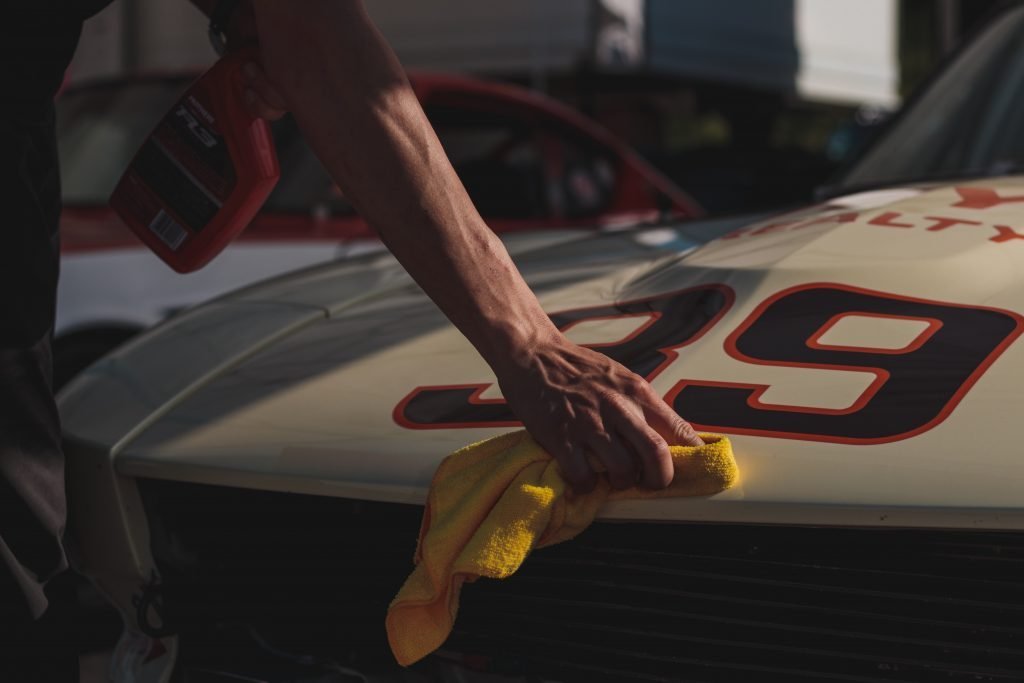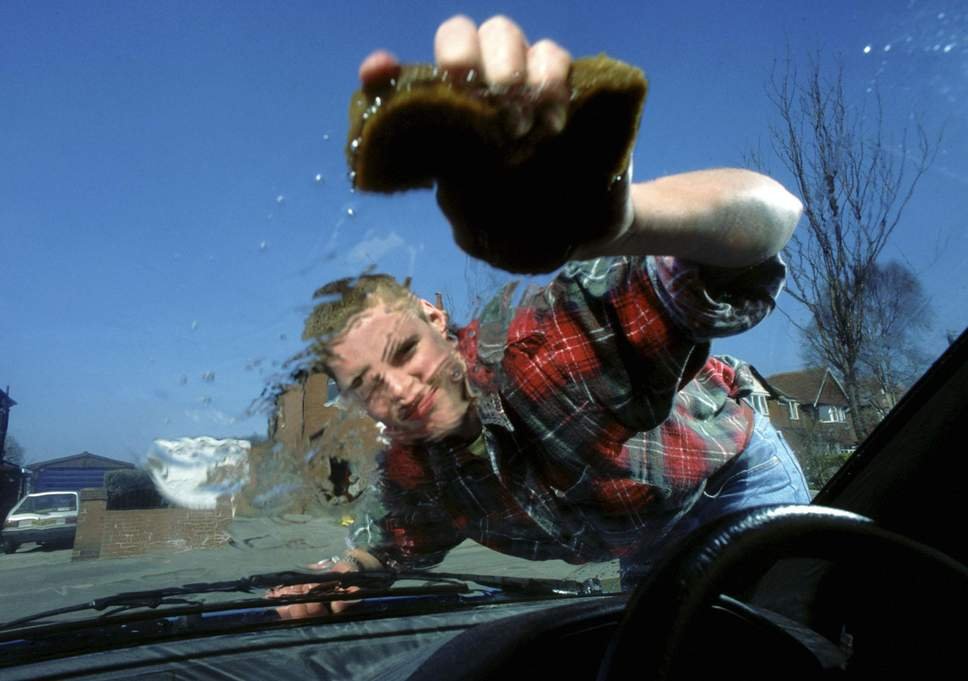Car Wash Slavery – The Hidden Suffering in UK Car Washes
Car wash slavery. A term that seems at first rather strange. Slavery in car washes?
To most people, the idea seems ludicrous, but unfortunately modern day slavery thrives in budget hand car washes, and many people are suffering in plain sight.
With as many as 20,000 hand car washes having popped up all over Britain in recent years, more and more people are taking their vehicles to be serviced for as low as £2.99.
Everyone loves a bargain, and so these business remain open for 10/12 hours a day, 7 days a week in order to service as many cars as possible. However, have you ever wondered about the true cost of such cheap labour?
Labour exploitation is the most common form of modern slavery in the UK (with 44% of modern slaves being victims of labour exploitation), with car wash slavery being the most common form of exploitation, accounting for up to 27% of all victims of forced labour.
For more human trafficking facts, check out my full article here.

Car Wash Slavery – The Hidden Suffering in UK Car Washes
The way that modern slavery manifests itself in hand car washes is by jobs being advertised online in the victims’ home countries (most victims come from Romania, Albania and Poland).
The employer arranges their travel to the UK, and when they arrive, they are told that they will be working for up to 14 hours a day, 7 days a week for little or no payment and living in overcrowded and unsanitary accommodation.
Often, the employers are verbally and physically abusive, frequently taking away their passports and documents, and the victims are not provided with basic safety equipment, which has led to cases of trench foot and severe chemical burns for the workers.

Not only this, but victims report having to sleep on shared mattresses on the floor and not having money to buy food or pay for electric. In one case, a Romanian man actually died as a result of the faulty electrics in his accommodation.
Many people question why people continue to work in such terrible conditions, but it isn’t as simple as just going to the police or walking out.
Most victims of car wash slavery are unable to speak English, they aren’t documented, and they don’t know their workers’ rights.
Trapped in an exploitative environment, without passports or documentation and no knowledge of where to even go to get help, the maltreatment continues.
Not only this, but although hand car washes have regulations they should be adhering to, the UK does not actually have a system in place to register and license them, meaning that for the most part, they can operate however they like without detection.
Car Wash Slavery – The Numbers
Between October 2016 and June 2018, Unseen’s Modern Slavery Helpline received 326 calls and 147 webforms regarding concerns about car wash slavery.
Of this number, 360 cases of modern slavery were recorded, with 2170 victims.
In 88.3% of these cases (318), workers were experiencing forced labour with no movement reported, and 11.6% (42 cases) were classified as human trafficking, where the workers were being moved around the country, between different establishments.
Only 1% of calls to the helpline were made by a victim.
This implies that victims are either too scared to seek help, unaware that they are being exploited, or lacking knowledge about how to seek help.
While these numbers are shocking, they do reinforce the importance of making the public aware of modern day slavery at hand car washes, so that they can be vigilant and on the lookout for signs, and call the Modern Slavery Helpline if they suspect malpractice.

Car Wash Slavery – The Victims
One silver lining with modern day slavery hiding in plain sight is that we, the public, can have an instrumental part in helping to abolish modern day slavery in the UK, particularly in hand car washes.
Next time you take your car to a hand car wash, here are some signs that you can look out for:
- Are the workers lacking the correct protective equipment such as gloves, goggles, waterproof trousers, hi-vis jackets and waterproof boots?
- Do they seem to be working long hours with no breaks?
- Are they Eastern European in origin (particularly Romanian)?
- Do they seem fearful, withdrawn or subdued?
- Do they have poor hygiene and/or an unkempt appearance?
- Are they allowed to take tips?
- Do they have a good grasp of English?
- Can they take payment directly from you or do they direct you to give the money to a superior?
The Business
- Is it a ‘pop-up’ car wash? (Exploiters can keep victims moving to keep them isolated.)
- Are the costs extremely low?
- Is it a cash-only business?
- Does the manager collect all payments?
- Is the manager intimidating and overly watchful of employees?
- Does the overall quality of the site seem below average? Is it held together with bits of string with no ‘break-room’ area for the staff?
- Are there nearby caravans or on-site accommodation?
- Is there an absence of receipts?
The Costs
One of the main indicators that your local hand car wash could be benefiting from modern day slavery are rock-bottom prices.
Estimates say that any hand car wash charging £6 or less could potentially be exploiting its workers.
Let’s do the math:
If a car wash charges £5 and employs five workers for 10 hours a day, it would cost them £391.50 per day to pay their workers the minimum wage (£7.83 an hour for over 25s)*.
The workers would need to wash 79 cars a day (or one car every 7 and a half minutes) to meet that criteria.
Although this is doable, it relies on a constant stream of cars coming in, and also ignores the businesses’ need for profit, and also any overheads such as chemicals, water, equipment, rent and tax.
This also ignores the fact that many car washes employ more than 5 workers.
When you take profit and overhead costs into consideration, it is incredibly difficult to see how a £5 car wash could sustain itself.
Dawn Frazer, director of the Car Wash Advisory Service, believes that £9 is the minimum realistic price for a basic hand car wash.
*In 2020 the national minimum wage for over 25s will increase to £8.72, meaning that the costs per day would be £436.

What can you do if you suspect modern day slavery in your local hand car wash?
If you suspect that your local hand car wash is benefiting from modern slavery, do not ask the staff probing questions or make a scene – you could put the workers at risk of violence or being moved to another car wash.
Here are the relevant authorities to inform about possible car wash slavery:
- Call the Modern Slavery Helpline on 08000 121 700 or fill in the online form.
- Contact the police
- Contact the Gangmasters and Labour Abuse Authority on 0800 432 0804 or email them at intelligence@glaa.gsi.gov.uk
- Contact Crimestoppers on 0800 555 111
- Contact Anti-Slavery International
The Safe Car Wash App
Something that could be useful to all people who frequent hand car washes is an app called the ‘Safe Car Wash’ app, which is a result of the Church of England’s Clewer Initiative for Modern Slavery.
Partnered with the National Crime Agency, the Gangmasters and Labour Abuse Authority, the Independent Anti-Slavery Commissioner, the National Police Chiefs’ Council and the Local Government Association, this app is designed to be used by members of the public whenever they’re using a hand car wash.
Released in June of 2018, the app asks users a series of questions related to the indicators of car wash slavery.
If, based on the answers, there is a likelihood that modern slavery is occurring in the car wash, the user is asked to report their concerns to the Modern Slavery Helpline.
This is a great way of being able to anonymously assess the risks of a situation and take further action if required.

Car Wash Slavery | Final Thoughts
Modern day slavery in all its forms is one of the biggest evils in the world today.
Estimates say that there are over 40 million slaves being exploited in various industries across the world, and so when we see potential victims, it is our duty to do whatever we can to help them.
If you, or if anyone you know uses hand car washes, then please be vigilant and mindful of the indicators that somebody is being exploited and don’t hesitate to contact the relevant authorities if you suspect wrongdoing.
It may be tempting to give in to a £5 hand car wash, but is it really worth the human cost? Don’t let yourself contribute to this abhorrent practice.
Lastly, please share this article so that people can educate themselves about the signs of modern slavery in hand car washes. This is a super important topic and a message that really needs to be spread. Thank you!
Further Reading
Modern Slavery in UK Nail Bars
Human Trafficking in the UK
How to Spot Human Trafficking in Hotels
Child Trafficking on the Surface Web
Modern Slavery in Dubai
Modern Slavery in Qatar
Construction Workers in Dubai
If you liked this article and would like to support my work, please click the button above to donate a couple of bucks and buy me a coffee. The ad revenue that I receive on this website is minimal, so support from my readers enables me to keep creating content that you (hopefully!) love to read.

A very informative article, thank you for drawing this to people’s attention. Most people probably have no idea that this is going on right under their noses. As you say, the maths just don’t add up. We owe it to our own consciences to report suspicious practices.
Excellent article as this form of slavery has not received a lot of attention and many people are unaware of it. The Modern Slavery Helpline are a good resource for advice. Victims of slavery can be supported through a national process and would be allowed to remain in the UK. The police in Bedfordshire have recently targeted car wash operators and are promoting the safe car wash app.